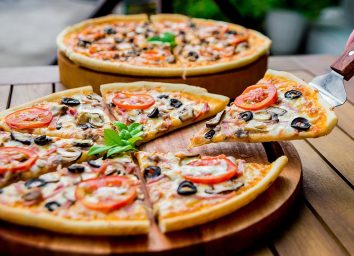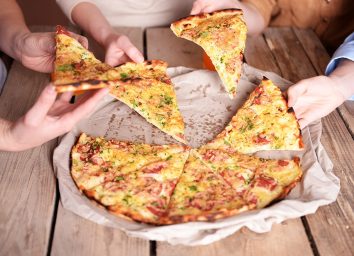This Is What Eating One Slice of Pizza Does to Your Body, According to Science
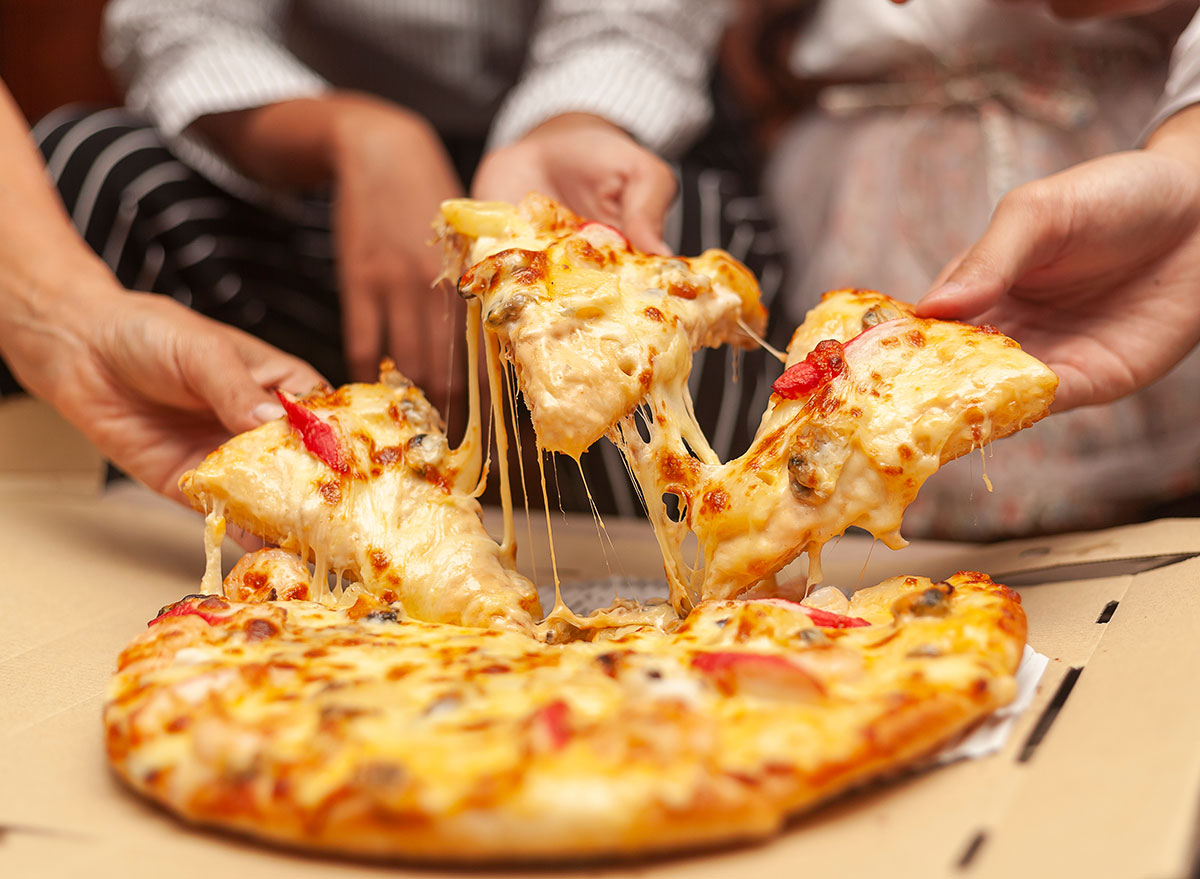
Whether you prefer thin-crust or deep-dish, plain cheese or pepperoni, America's love affair with pizza is well-documented. According to the U.S. Department of Agriculture (USDA)'s 2014 "What We Eat in America" report, approximately 1 in 8 Americans eats pizza on any given day.
However, it's not just dough, sauce, and cheese you're getting with that slice—according to experts, you could be setting yourself up for a long list of health problems, too.
Read on to discover what experts say eating one slice of pizza does to your body. And if you're looking for healthier convenience foods to enjoy, don't miss 7 Healthiest Foods to Eat Right Now.
You may feel a temporary high.
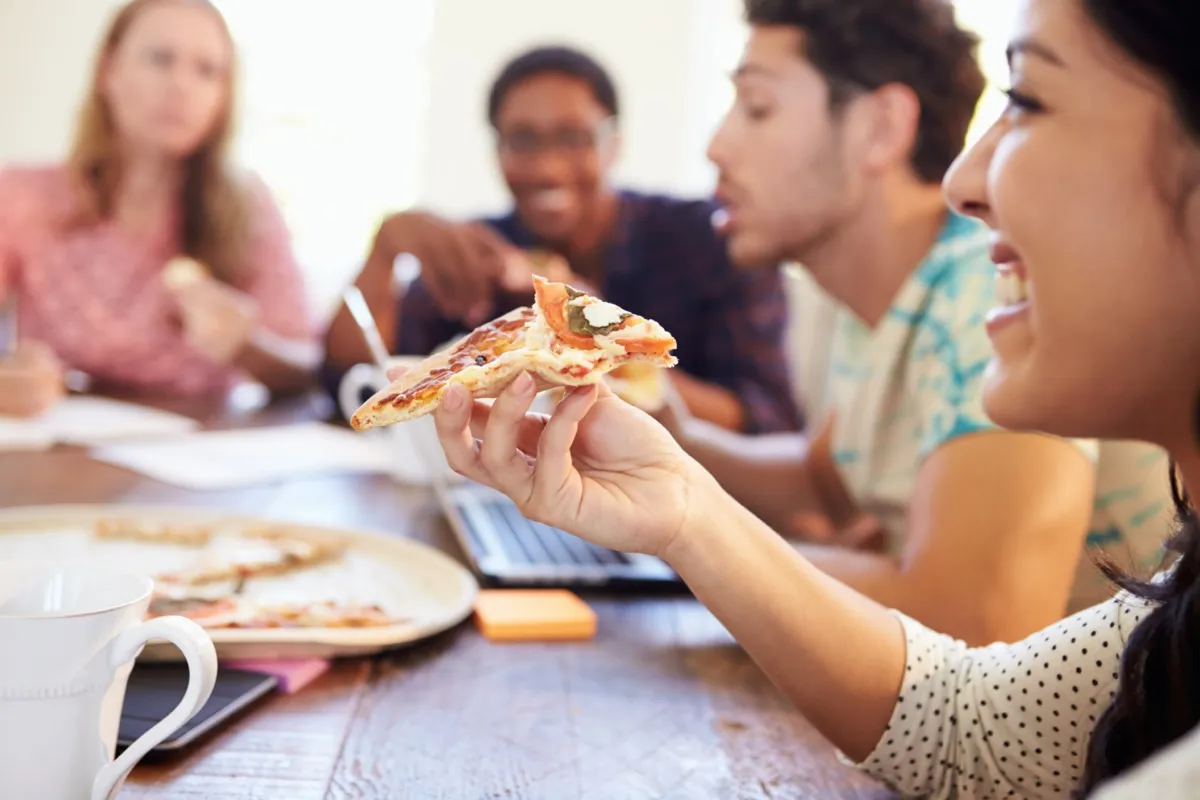
If you typically feel pretty blissed out after that first bite of pizza, you're not alone.
"Eating pizza can release endorphins which are similar to opioids to make us feel pleasure and euphoria," explains cardiothoracic surgeon and TV host Mehmet Oz.
Oz notes that a 2017 study published in The Journal of Neuroscience "found that a significant amount of endorphins was released in the entire brain after eating pizza."
Your blood pressure may spike.
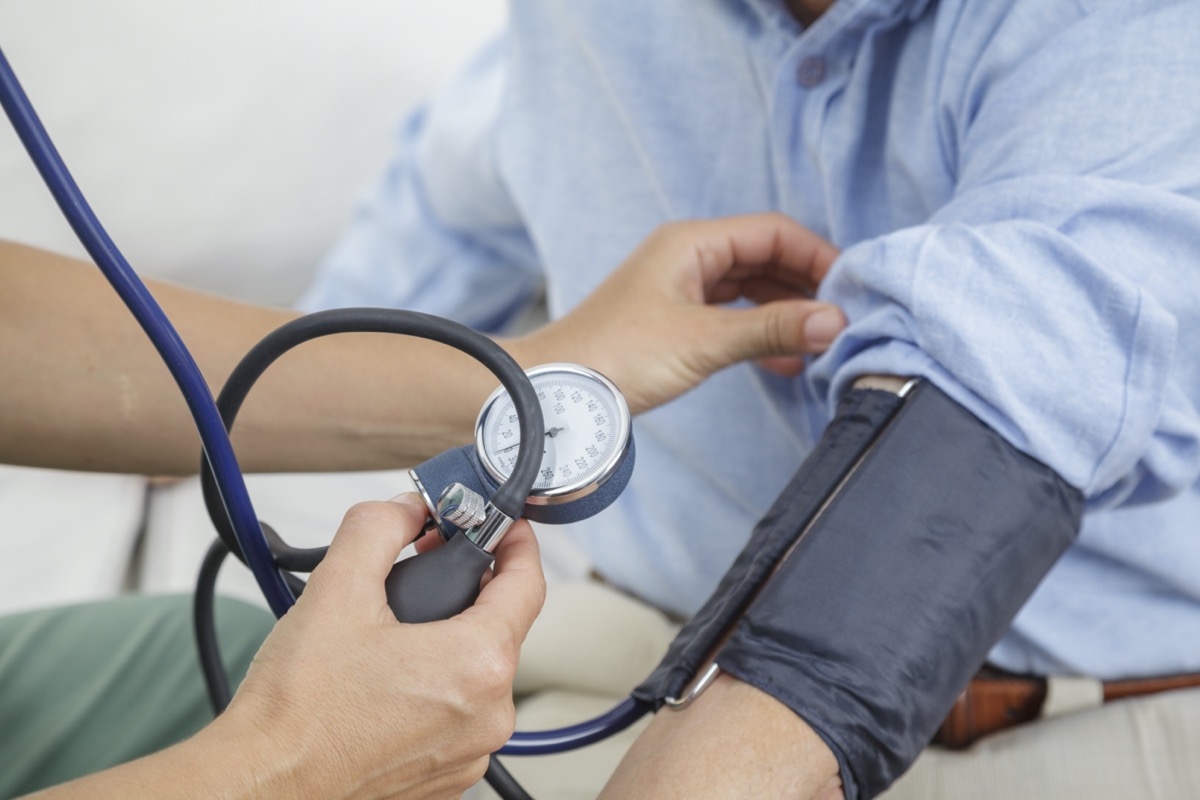
Your average slice of pizza contains a significant amount of sodium, which can cause your blood pressure to skyrocket, even if you keep your consumption to a minimum.
Oz notes that an average slice of pizza contains about a quarter of the adult RDA of sodium; in fact, on days when adults consume pizza, the dish typically accounts for 38 percent of their daily sodium intake, according to the USDA.
"Consuming too much sodium can lead to hypertension, leading to detrimental effects down the line like heart attacks, heart failure, or kidney disease," says Oz. And if you want to get your blood pressure under control, check out the 20 Healthiest Foods That Lower Blood Pressure.
You may experience a carb crash.

That pizza high could be followed shortly by a serious energy slump.
The high percentage of refined carbohydrates in your average pizza, "can cause blood glucose spikes and crashes in the average person, since refined carbohydrates do not have fiber to help slow down digestion and absorption," explains Registered Dietitian Nutritionist Annamaria Louloudis, MS, RD, founder of Louloudi Nutrition. If you want to avoid that slump, check out these 20 Foods More Energizing Than a Cup of Coffee.
Your digestion may become sluggish.

Don't be surprised if that clockwork-like digestive tract of yours slows significantly after that slice of pizza.
"White flour products turn into simple sugar, which can create a crash and they cause constipation," explains holistic nutritionist Sally Pansing Kravich, MS, PhD. And if you want to keep your digestive tract healthy, avoid The Worst Foods for Gut Health.
You may increase your risk of heart disease.
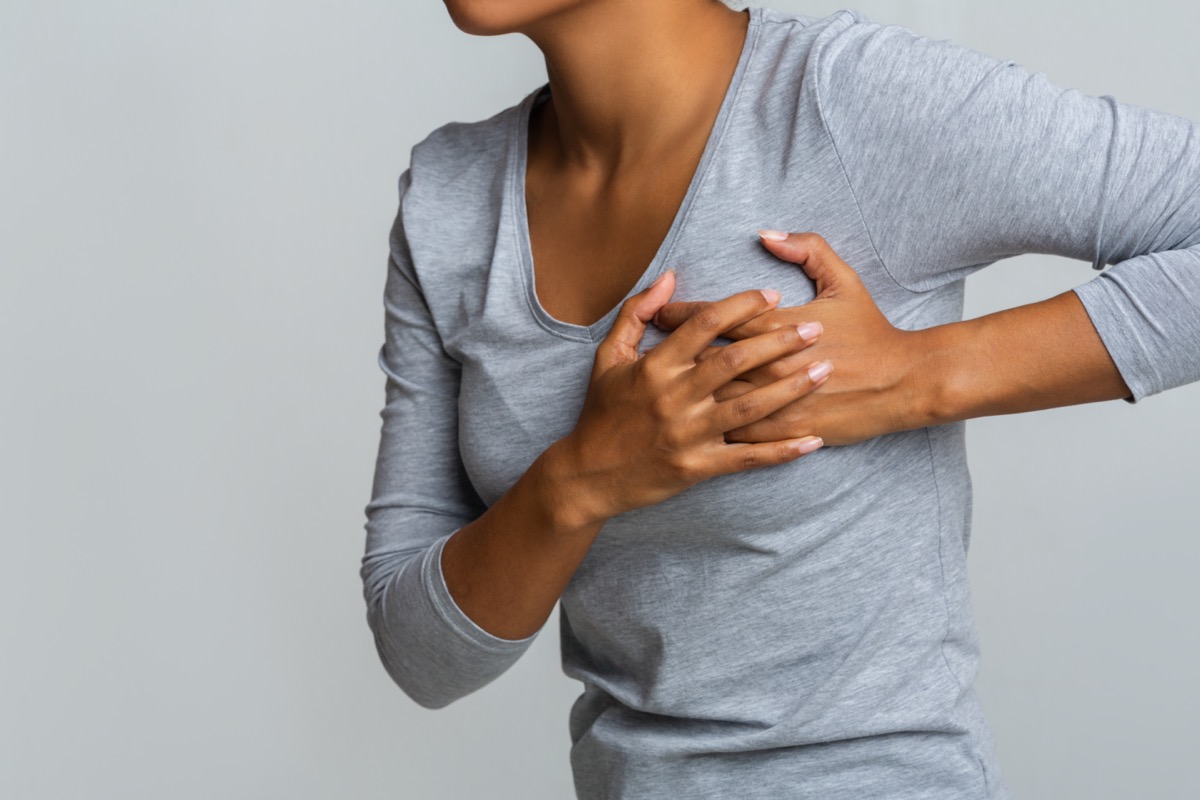
That slice of pizza may make your taste buds happy, but it's certainly not doing any favors for your heart.
"Most pizzas are made with ingredients that cause them to have a high saturated fat content," explains Trista Best, MPH, RD, LD, a registered dietitian at Balance One Supplements. "Heart disease and obesity are the main diseases associated with a diet high in cheese and fatty meats, like those commonly on pizza."
You may find yourself unable to stop at one slice.

Sure, you may only intend to eat one slice of pizza, but odds are you'll go back for a second—or even a third. That happy feeling you felt after your first bite might just trick you into wanting more, even if you're already full.
"Processed carbohydrates and refined sugars (both are present in pizza) have been intentionally manufactured to be overeaten, with a bliss point—the perfect balance of ingredients that makes it impossible to stop at just one slice. This leads to overconsumption," explains holistic nutritionist and certified Integrative Nutrition Coach Skylar Buchanan. Trying to tame those cravings? Start with these 30 Hacks to Feel Full When You're Trying to Lose Weight.
